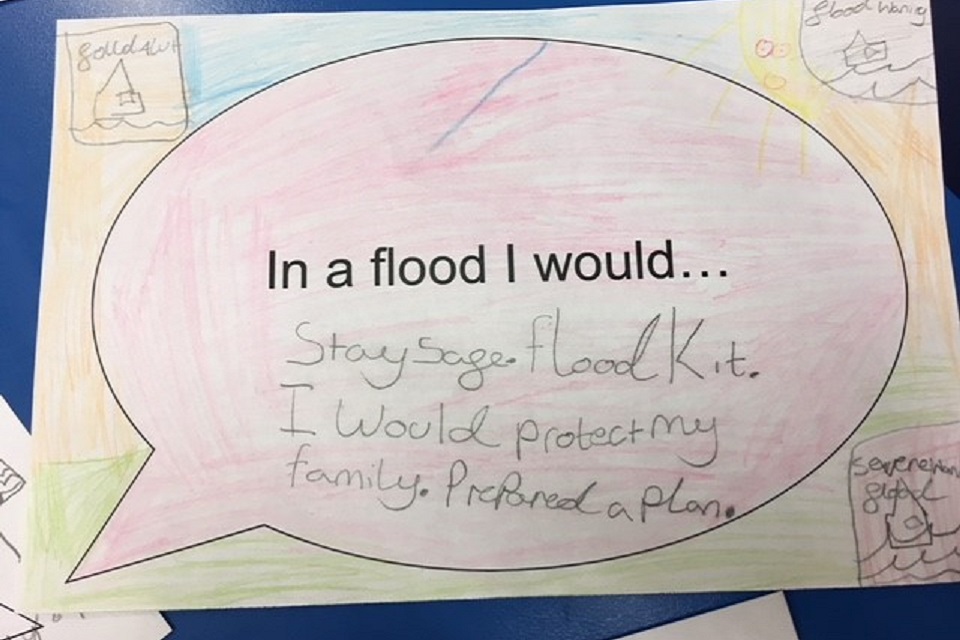Press release: Pupils help their schools prepare for flooding
Community Engagement Officer Taryn Al-Mashgari has helped youngsters develop flood plans and ‘grab bags’ so they are prepared in the event of a flood.
The series of themed weeks – which have so far involved 1,200 primary school children – kicked off at North Fawdon Primary School in Newcastle in January, before moving to South Tyneside ahead of the start of Monkton flood alleviation scheme.
Taryn works with the children in all year groups to help them understand different types of flooding and how it happens. They learn what to do before and during a flood, and learn what the flood warning symbols used by the Environment Agency mean.
They then record mock radio broadcasts about flooding in their community.

Important to understand flooding
Each week ends with a community event attended by parents, Northumbrian Water and Northern Powergrid where children launch the flood plan they’ve created for their own school.
At schools in South Tyneside – St James’ RC Primary School and Hebburn Lakes Primary School – Monkton flood scheme project manager Tom Pitman, working for South Tyneside Council and the Environment Agency – and partners at the Tyne Rivers Trust attended to give parents an overview of the project. Taryn said:
It’s important that younger people understand what flooding is, how it happens and what the different organisations that deal with flooding do.
We also teach them how to prepare for and what to do during a flood in a series of interactive sessions. It leads to them being able to create a flood plan for their own school, and in turn their parents having a greater understanding.
We know it is absolutely devastating to be flooded and that’s why we work closely with our partners to develop schemes to reduce the risk of flooding – such as the project due to start at Monkton.
But we can never completely eliminate the risk and that’s why we work hard to educate people and our future generations about what they can do to keep themselves and their valuables safe.

Prepare, Act, Survive
Taryn will visit Toner Avenue Primary School in Hebburn before moving on to Washington with flood weeks at Springwell Village and Albany Village Primary Schools.
She has also developed a teaching pack which will be delivered by secondary schools across the region as part of Personal, Social, Health and Economic (PSHE) curriculum.
The Environment Agency is urging people to ‘Prepare, Act, Survive’ by visiting the Floods Destroy website and do three things to prepare for flooding.
- check your postcode and find out if you are at risk of flooding
- sign-up for free flood warnings if you are at risk
- view and save the 3-point flood plan so you know how to ‘Prepare, Act, Survive’ in a flood